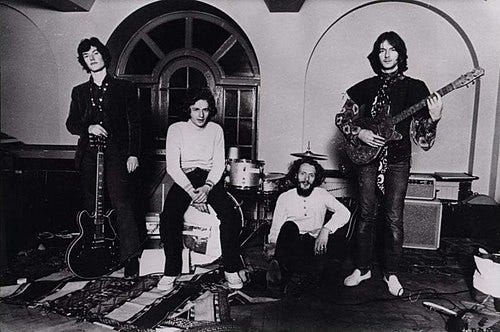Trove Of Tunes – Can’t Find My Way Back Home
A supergroup, a single album, and a song that has found many homes.
We’re going back to the year 1968. The band Cream had just disbanded, and Steve Winwood was taking a break from his band, Traffic. Winwood and Eric Clapton had a few jam sessions at the latter’s basement in Surrey, England later that year.
The year turns to 1969, and Ginger Baker (drummer, and fellow Cream member), and Ric Grech (former bass guitarist of Family), join Winwood and Clapton to form a supergroup—Blind Faith. They released one album, comprising six songs, toured for three months, and went on to have many successful collaborations with different artists in the decades to follow.
Tune in to ‘Can’t Find My Way Home’ by Blind Faith, from the album by the same name, released in July/August of 1969. Here’s the 2010 remastered version of the song.
Different Shades of One Song
I think a lot about the opening song when it comes to albums and concerts. When you listen to the 6 songs in the Blind Faith album, they all make for a great opening song. When I listen to ‘Can’t Find My Way Home’—one of the 6 tracks, I think of its elasticity to extend into several improvisations. I think of extended solos, a choir-backed rendition that has different interpretations of the song on each voice, a soulful and slowed-down country version that will accompany you during your long highway drives. I heard the song again a few months ago when Robert Randolph, Ruthie Foster, Megan Murray, and The Teskey Brothers performed it as an all-star encore at the Mahindra Blues Festival, 2025 in Mumbai, India.
Figuring A Way Home
Steve Winwood wrote the song, but there’s no public account of its meaning and origin. Winwood has said in the past that, ‘When I write a song, I don't like to have to explain it afterwards. To me, it's like telling a joke, then having to explain it. The explanation doesn't add to the song at all.’
In my books, the lyrics talk of seeing the need for change, but being helpless with no direction. I’m fascinated by the placement of ‘but’, ‘still’ and ‘and’ before the main line that’s repeated throughout the song. They make the lines more disconnected, and the interpretation more confusing.
Many artists have covered the song over the decades, ranging from Joe Cocker, Alison Krauss, Bonnie Raitt, Styx, Swans, etc. I love the original as is, alongside versions by Yvonne Elliman and Rachael Price.
I’ll be back soon with another number that pins my ear, finds my trove, and stays with me. Till then, you can continue to check out my Trove Of Tunes curated in a Spotify playlist by clicking here.
Cheers,
Shri

